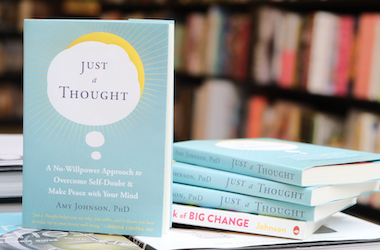There’s a common phenomenon among students of this understanding I study and share. 
We’ve seen some things about life that have been really helpful. We’ve had insights that have made clear what was previously murky. We’ve found relief from suffering at times, and we’ve probably all had the experience of laughing out loud at how seriously we take ourselves.
Life isn’t always easy and we’re not always seeing clearly. But we have seen clearly—even if only in fleeting, insightful moments—and that clarity isn’t easily forgotten. It sticks with you and forms the basis for everything you understand about life.
When we aren’t feeling great, we tend to try to remember or remind ourselves what we know.
In sad voices we say things like, “I know it’s my thinking”. “I know it’ll pass”. “I know I’m not seeing clearly.”
On the one hand, of course that’s where our minds go. We’re feeling uncomfortable and we want to feel better so we naturally go back to what we know to be true. We naturally go back to the understanding that has brought us so much freedom and relief in the past.
And there’s nothing wrong with that. Nothing wrong with feeling badly and nothing wrong with wanting to not feel so badly. But reminding ourselves of that which we already know, but are not deeply seeing in any meaningful way at the moment, isn’t particularly helpful.
What if, instead of looking to what we know but aren’t currently seeing, we turned our view to what we don’t know in that moment?
What are we not seeing? What don’t we get?
There’s something we’re not seeing clearly—we know that from the feeling we’re in. There’s some thinking that looks real, some bias that looks valid, some way we’re using our creative minds against ourselves.
If we got curious about that, we’d at least be looking in a new direction. We’d be facing the unknown rather than the known.
And there is a whole lot to potentially see in the unknown.





